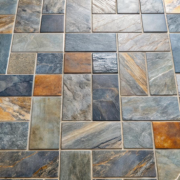The consensus regarding the frequency of plumbing maintenance is once per year for a newer system. If your plumbing system is a bit old or has needed frequent checks or repairs in the past, it’s best to schedule plumbing maintenance once every six months. If you have plenty of mature trees around your home, you might need to increase the frequency of your plumbing maintenance.
You also need to understand that your plumbing system consists of many different components working in harmony. Some parts of the system require more regular inspection and maintenance than others. Faucets and kitchen sinks, for instance, will need more frequent attention than water supply lines.
When to Increase Frequency of Plumbing Maintenance
Although plumbing professionals recommend annual plumbing maintenance, some situations may necessitate a more regular maintenance schedule. These situations include:
Living in an Older Home
Plumbing disasters strike older homes more frequently than new homes. The quality of materials that make older plumbing systems may be the reason for this vulnerability. An older home, for instance, is likely to have steel pipes that are more susceptible to corrosion and rust.
Such materials deteriorate over time. They cause plumbing problems like leaks, pipe bursts, or heavy metals in water. An old home’s plumbing system requires a more frequent checkup to detect any sign of a plumbing problem.
A Home Near or Surrounded by Mature Trees
The surrounding trees could have been young when the house got constructed. Years later, these trees develop strong long roots that can effortlessly slide under sewer lines and water pipes.
They can also exert excessive pressure against the pipes, resulting in cracks or bursts. The outcome will be a disastrous and costly plumbing emergency. If you live in such a home, it’s best to have your plumbing system inspected twice a year by a Toronto plumber.
Moving into a New House
A thorough plumbing inspection is necessary when moving into a new house. Don’t rely on the inspection report from the home inspector only. Instead, hire a plumber to inspect the plumbing system of your new home.
A plumber has the required skills and experience to detect overlooked plumbing issues that would lead to major plumbing emergencies down the road.
What Can You Expect the Plumber to Do During the Scheduled Plumbing Maintenance?
Water Leak Detection
A plumber will start by walking through your home to look for any signs or hints of a potential leak. The plumber will check plumbing fixtures, sinks, sprinkler systems, and pool systems. Your plumber will also read the water meter to determine the water consumption rate.
If there are no fixture- and out-surface leaks, the plumber will check for underground leaks or wall leaks. Your plumbing professional may use sound detection equipment and a thermal camera to detect water leaks. Upon leak detection, the plumber will discuss the best repair techniques and costs before moving forward with the repair.
Check Water Pressure
An average home should have water pressure that ranges from 45 to 65 pounds per square inch (PSI). Low water pressure may arise from pipe leaks, clogged pipes, defective pressure regulators, tree roots obstructing the main water line, water regulation changes, and problems at your water supply company.
High water pressure may arise from excessive heat in your pipes. This heat buildup exposes your pipes to stress and could result in corrosion, cracks, leaks, or damage. Checking water pressure enables the plumber to detect and address potential plumbing problems.
Kitchen’s Plumbing System
Your plumber will inspect the water supply lines and shutoff valves under your kitchen sink. The plumber will examine the faucet for leaks and performance. The plumbing specialist will also check under the sink for water leak signs.
Bathroom’s Plumbing System
The plumbing professional will inspect your bathroom’s plumbing system. The pro will check if taps, bathroom sinks, showers, and toilets are in good condition.
Don’t Forget About Your Trees
While it’s important to schedule regular plumbing maintenance to keep your pipes and fixtures in good working order, there is another factor to consider when it comes to maintaining your home’s plumbing: tree roots.
If you have trees on your property, the roots can sometimes grow into your plumbing lines and cause blockages or other issues. To avoid this problem, it’s a good idea to get a tree assessment. This will help you identify any potential issues with your trees, such as roots that are growing too close to your plumbing.
A tree assessment can also help you develop a plan for maintaining your trees in a way that minimizes the risk of roots impinging on your plumbing. So, in addition to scheduling regular plumbing maintenance, make sure to add a tree assessment to your list of home maintenance tasks.
Water Heater Draining and Flushing
Flushing and draining the water heater at least once every year can improve its performance and prolong its lifespan. This activity eliminates sediments that corrode the appliance and result in unbalanced heating in the equipment.
Local governments amend plumbing regulations from time to time. These changes could affect your heating appliance. An experienced local team emergency plumber familiar with these regulations will fix your appliance to comply with the regulations.
Who Should Perform Plumbing Maintenance?
You can perform simple preventive plumbing maintenance, including clearing clogs and fixing leaky faucets. You should, however, leave comprehensive yearly preventive plumbing maintenance to a licensed and experienced plumber.
Look for a competent plumber who understands the type of maintenance your home needs. The plumber should have state-of-the-art plumbing tools and materials. The plumber should also have a reputation for delivering outstanding plumbing maintenance and inspection.
Conclusion
Plumbing emergencies are likely to occur, no matter how frequently you maintain your plumbing system. For this reason, you should work with a local plumber like Lexs Plumbing who can comfortably handle your scheduled maintenance and address plumbing problems that may arise in the future.














[…] should never make the same mistake of neglecting your plumbing system just because you thought it was working just fine. Proper maintenance is needed now and then, and […]